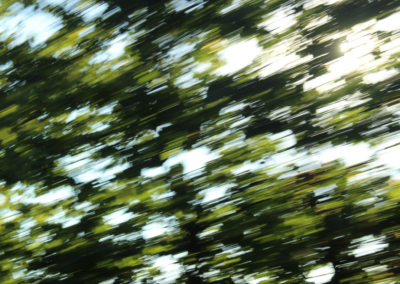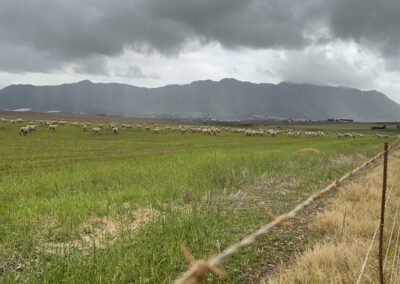The Event Greening Forum interviewed Nishanthi Lambrichs, CNG carbon advisor and Programme Manager for GreenDreams and GreenSeat. Both initiatives were developed by us to help the accommodation and the travel sectors, respectively, take action on climate change.
Q. WHEN AND WHY DID YOU, PERSONALLY, START TO DEVELOP AN AWARENESS ABOUT SUSTAINABILITY, AND A DESIRE TO CHAMPION IT THROUGH YOUR WORK?
Growing up in a country where it’s the norm to separate your waste, cycle everywhere and take public transport on a daily basis, creates a certain awareness for green living and sustainability. Moving to South Africa was a wake-up call in many ways. I worked in the event industry in the Netherlands and the sustainability aspects are important topics on the agenda. When I moved to South Africa, I realised that there is still a lot of work that needs to be done. This inspired me to get involved in the sustainability sector; help set the standard and raise awareness in order to create change.
Q. WHAT IS YOUR ROLE AT CLIMATE NEUTRAL GROUP SOUTH AFRICA, AND WHAT DO YOU LOVE MOST ABOUT IT?
I’m a carbon advisor at CNG and mainly focus on assisting companies within the hospitality industry to gain insight into their carbon footprint, enabling them to reduce and offset their emissions. Our GreenDreams initiative helps hotels, B&Bs and guesthouses in South Africa put measures in place to take responsibility for their environmental impact. [You can read an article on The Maslow’s success with this programme here.] I’m also responsible for GreenSeat: our carbon initiative for the travel sector (we would like to refer to it as the boarding pass to climate neutral flying). We offer several unique tools that help businesses measure, change and finally green their business travel habits.
And, last but not least, there’s Climate Neutral Events. The first step we take to create a carbon neutral event would be to get insights into your event’s carbon footprint in order to set a baseline. The second step is to set targets and reduce your carbon footprint. And, because we, unfortunately, can’t reduce the footprint to zero carbon emissions, investing in offsets is a great way to reduce your climate impact. Assisting companies during this journey and making this world a little greener is what motivates me to go to work every morning.
Q. DOES CLIMATE NEUTRAL OFFSET ITS OWN CARBON FOOTPRINT, AND IF SO, HOW?
Yes, we do offset our own carbon footprint with a basket of various Gold Standard projects: Biogas Tanzania, Kenya and Cambodia.
Q. DO YOU HAVE A FAVOURITE CARBON OFFSET PROJECT YOU’D LIKE TO TELL US ABOUT?
There are currently two projects within our portfolio that I really like. The Wonderbag and, our latest addition, Boreholes in Africa. The Wonderbag is a non-electric heat-retention cooker that allows food that has been brought to the boil by conventional methods to continue to cook for up to 12 hours without using additional energy usage. The Wonderbag offset has significant sustainable development benefits. Firstly, the program creates employment in South Africa, where the bags are used in large numbers. Secondly, field surveys indicate that users of the bags have reduced fuel bills and finally, there is published evidence that reduced consumption of fossil fuels drives down illnesses caused by fumes, smoke, and soot.
The Boreholes in Africa initiative operates in Uganda, Rwanda, Malawi, and Eritrea. Here, like anywhere else in the world, clean drinking water is vitally important. Offsetting 1 tonne of CO2 translates into 1.405 litres of clean drinking water for rural households. I think this is a great offset project, especially since access to water is one of the highest threats climate change poses.
Q. IF YOU COULD WAVE A MAGIC WAND AND CHANGE ONE THING ABOUT THE SA EVENTS INDUSTRY TO MAKE IT MORE SUSTAINABLE, WHAT WOULD THAT ONE THING BE?
I find it difficult to pin this down to just one thing, as there are still so many aspects we need to work on. Education and creating awareness for what we try to accomplish is very important though. People need to get a better understanding of what will happen if we don’t take action because we are destroying our beautiful planet if we continue like this.
Transport is an important topic as well, especially since people in South Africa are so used to driving by themselves in their own car to events etc. Of course, safety is playing an important role in this, but organizing more shared transport for events would be a great start. On top of that a lot of people are flying in from different cities, therefore, it would be great to make flight offsetting the norm.
Personally, I’m big on plastic, we should really stop using it, and make conscious decisions to do so as event organizers. For example no straws, but supply bamboo straws instead. At the end of the day, it is better to start with something small, rather than doing nothing at all.



